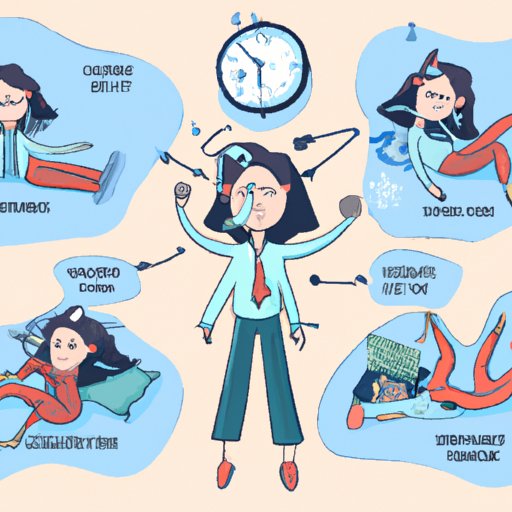How to Go to Sleep: Tips and Tricks for Restful Nights
Sleep is an essential aspect of our health and wellbeing, but for many people, it can be challenging to fall asleep and stay asleep. Lack of sleep can lead to a range of issues, including impaired cognitive function, increased stress, and a weakened immune system. Fortunately, there are many techniques and habits you can implement to help you achieve restful nights. In this article, we’ll explore some effective tips and tricks for getting the sleep you need.
Establish a Consistent Bedtime Routine
One of the most effective ways to fall asleep faster and sleep more soundly is to establish a consistent bedtime routine. By performing a series of relaxing and soothing activities before bed, you signal to your body that it’s time to rest. This can help you unwind after a busy day and ensure that you’re in a relaxed state before you hit the pillow.
Examples of activities that can be incorporated into a bedtime routine include taking a warm bath, reading a book, doing some light stretches, or practicing relaxation exercises such as stretching and deep breathing. Try to avoid rigorous physical or mental activity that could get you energized, as this can make it harder to calm down and drift off to sleep.
Limit Screen Time
Many of us spend a significant amount of time in front of screens, whether it’s our phones, laptops, or TV. While this may be necessary for work or entertainment, it can also interfere with our ability to sleep well. This is because the blue light emitted by screens can reduce levels of melatonin, the hormone that helps regulate our sleep-wake cycle.
To reduce the negative impact of blue light, try limiting your screen time before bed. Avoid scrolling through social media or checking your emails before going to bed. Instead, take the time to wind down and relax. You can read a book or listen to calming music instead. If you do need to use your phone or computer, consider using a blue light filter or wearing blue light-blocking glasses to reduce the exposure to blue light.
Create a Comfortable Sleeping Environment
The environment where you sleep can make a huge difference in the quality of your sleep. It’s essential to create a space that’s comfortable, soothing, and conducive to relaxation and rest. Ensure that your bed is comfortable and supportive, invest in quality bedding, and pillows that are suited to your preferences. Adjust the temperature to a level that is comfortable for you; most people sleep better in a slightly cooler environment.
Another essential factor in creating a comfortable sleeping environment is to keep your bedroom dark. Use blackout curtains or wear a sleep mask to block out any external light that could disturb your sleep. Consider using earplugs if noise is an issue in your environment.
Practice Mindfulness and Meditation
Mindfulness and meditation can be helpful in reducing stress and anxiety, both of which can contribute to sleep problems. Incorporating mindfulness and meditation techniques into your bedtime routine can help you relax, clear your mind, and prepare you for a restful night’s sleep.
You can use apps that offer guided meditations or breathing exercises. Some people find that other mindfulness practices, such as gratitude journaling or gentle yoga stretches, can also be beneficial in relaxing the mind and body.
Exercise During the Day
Regular physical activity, such as exercise, can improve the quality and duration of your sleep. Exercise helps reduce stress levels and tires out your body, which makes it easier to fall asleep and stay asleep. Ideally, try to exercise at least three hours before bedtime to prevent any interference with the sleep-wake cycle.
There are many ways to incorporate exercise into your daily routine. You can join a workout class, go for a hike, bike ride, swim, or perform strength training at the gym. Find an activity that you enjoy and mix it up to keep the routine interesting.
Conclusion
Sleep is an essential aspect of our health and wellbeing, and there are many effective ways to ensure that you get the rest you need. By establishing a consistent bedtime routine, limiting your screen time, creating a comfortable sleeping environment, practicing mindfulness and meditation, and exercising during the day, you can significantly improve the quality and duration of your sleep. It’s important to experiment with these tips and adapt them to your preferences and lifestyle to find a routine that works best for you. With patience and commitment, you can enjoy restful nights of rejuvenating sleep.
